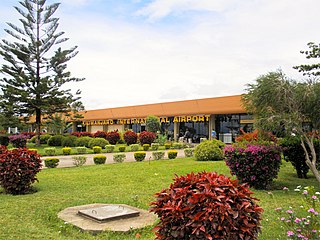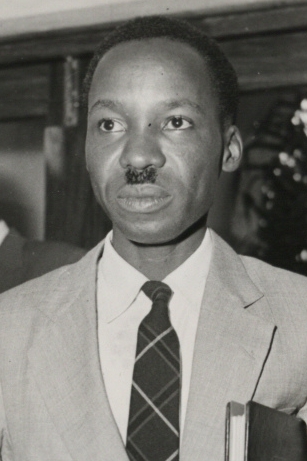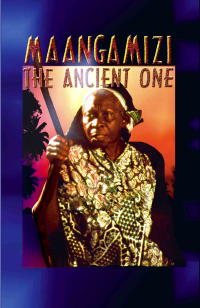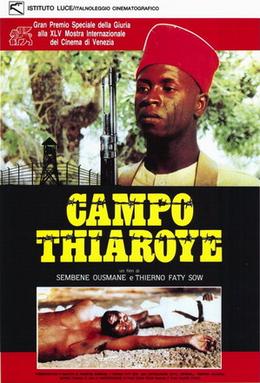Related Research Articles

Kilimanjaro International Airport (KIA) is an international airport located in Hai District, Kilimanjaro Region, Tanzania. The airport serves the cities of Arusha and Moshi. The airport handled 802,731 passengers in 2014 and mainly serves regional flights as well as a few long-haul services due to its importance as a leisure destination. It is the largest airport in northern Tanzania, by size and passenger volume.

As it is in other countries, the music in Tanzania is constantly undergoing changes, and varies by location, people, settings and occasion. The five music genres in Tanzania, as defined by BASATA are, ngoma, dansi, kwaya, and taarab, with bongo flava being added in 2001. Singeli has since the mid-2000s been an unofficial music of uswahilini, unplanned communities in Dar es Salaam, and is the newest mainstream genre since 2020.

Arusha City is a Tanzanian city, with a population of 617,631, and the regional capital of the Arusha Region, with a population of 2,356,255.

Ousmane Sembène, was a Senegalese film director, producer and writer. The Los Angeles Times considered him one of the greatest authors of Africa and he has often been called the "father of African film".

Cinema of Africa covers both the history and present of the making or screening of films on the African continent, and also refers to the persons involved in this form of audiovisual culture. It dates back to the early 20th century, when film reels were the primary cinematic technology in use. As there are more than 50 countries with audiovisual traditions, there is no one single 'African cinema'. Both historically and culturally, there are major regional differences between North African and sub-Saharan cinemas, and between the cinemas of different countries.

Ujamaa was a socialist ideology that formed the basis of Julius Nyerere's social and economic development policies in Tanzania after it gained independence from Britain in 1961.

Moolaadé is a 2004 film by the Senegalese writer and director Ousmane Sembène. It addresses the subject of female genital mutilation, a common practice in a number of African countries, from Egypt to Nigeria. The film was a co-production between companies from several Francophone nations: Senegal, France, Burkina Faso, Cameroon, Morocco, and Tunisia. It was filmed in the remote village of Djerrisso, Burkina Faso. The film argues strongly against the practice, depicting a village woman, Collé, who uses moolaadé to protect her daughter and a group of younger girls. She is opposed by the villagers who believe in the necessity of female genital cutting, which they call "purification". This was Sembène's last film before his death in 2007.

Black Girl is a 1966 French-Senegalese drama film, written and directed by Ousmane Sembène in his directorial debut. It is based on a short story from Sembène's 1962 collection Voltaique, which was in turn inspired by a real life incident. Black Girl stars Mbissine Thérèse Diop as Diouana, a young Senegalese woman who moves from Dakar, Senegal to Antibes, France to work for a French couple. In France, Diouana hopes to continue her former job as a nanny and anticipates a new cosmopolitan lifestyle. However, upon her arrival in Antibes, Diouana experiences harsh treatment from the couple, who force her to work as a servant. She becomes increasingly aware of her constrained and alienated situation and starts to question her life in France.

Maangamizi: The Ancient One is a 2001 American / Tanzanian drama film directed by Martin Mhando and Ron Mulvihill and executive produced by Jonathan Demme. It premiered at the Pan African Film Festival and has played in over 55 Film Festivals worldwide. It was the Tanzanian submission for the Academy Award for Best foreign language film, the first film to be submitted from that country, but was not nominated.
Borom Sarret or The Wagoner is a 1963 film by Senegalese director Ousmane Sembène, the first film over which he had full control. It is often called the first film made in Africa by an African; the first "professional" African film; or the first such film to be shown widely outside of Africa. However, this is disputed, with some other films, such as Song of Khartoum, Sarzan, and Mouramani having arguably been produced earlier. Thus, some authors refer to it as "among the first" films made in Africa by an African filmmaker. Borom Sarret is 18 minutes long and tells a story about a cart driver in Dakar. The film illustrates the poverty in Africa, showing that independence has not solved the problems of its people. It was shown as part of the Cannes Classics section of the 2013 Cannes Film Festival.

Mandabi is a 1968 film written and directed by Senegalese filmmaker Ousmane Sembène. The film is based on Sembène's novel The Money-Order and is the director's first film in his native Wolof language. Since most of the Senegalese population at the time did not understand French, Sembène wanted to create cinema for Wolof speakers. This is believed to be the first full-length African language film from West Africa.

The cinema of Senegal is a relatively small film industry which experienced its prime from the 1960s through to the early 1980s, but has since declined to less than five feature films produced in the last ten years. Senegal is the capital of African cinema and the most important place of African film production after its independence from France in 1960.
Penina Muhando, also known as Penina Mlama, is a Tanzanian Kiswahili playwright, a theorist and practitioner of Theatre for Development in Tanzania.
Ebrahim Hussein is a Tanzanian playwright and poet. His first play, Kinjeketile (1969), written in Swahili, and based on the life of Kinjikitile Ngwale, a leader of the Maji Maji Rebellion, is considered "a landmark of Tanzanian theater". The play soon became one of the standard subjects for examinations in the Swahili language in Tanzania and Kenya. By 1981, it had been reprinted six times.
Guelwaar is a 1993 French-Senegalese drama film written and directed by Ousmane Sembène. The name is borrowed from the Serer pre-colonial dynasty of Guelowar. The film won The President of the Italian Senate's Gold Medal at the 49th Venice International Film Festival.

Emitaï is a 1971 Senegalese drama film directed by Ousmane Sembène.

Camp de Thiaroye is a 1988 Senegalese war-drama film written and directed by Ousmane Sembène and Thierno Faty Sow.
Ruth E. Meena is a Tanzanian feminist activist and political scientist. She was a professor in the Department of Political Science and Public Administration at the University of Dar es Salaam.
Thierno Faty Sow was a Senegalese filmmaker, screenwriter and actor.
References
- ↑ Koch, Jule (2008). Karibuni Wananchi: Theatre for Development in Tanzania : Variations and Tendencies. Eckersdorf [Germany]: Thielmann & Breitinger. p. 107. ISBN 978-3-939661-06-1.
- ↑ Akyeampong, Emmanuel K.; Gates, Henry Louis Jr., eds. (2012). "Lihamba, Amandina (1944– )". Dictionary of African Biography. Oxford: Oxford University Press. ISBN 978-0-19-538207-5.
- ↑ Plastow, Jane (1996). African Theatre and Politics: The Evolution of Theatre in Ethiopia, Tanzania and Zimbabwe: A Comparative Study. Amsterdam: Rodopi. p. 3. ISBN 978-90-420-0038-4.
- ↑ Justice-Malloy, Rhona, ed. (2010). Theatre History Studies 2010 (2nd ed.). Tuscaloosa: University of Alabama Press. pp. 35, 40. ISBN 978-0-8173-7107-4.
- ↑ Mwangi, E. (2009). "Amandina Lihamba's gendered adaptation of Sembene Ousmane's The Money-Order". Research in African Literatures. 40 (3): 149–173. doi:10.2979/ral.2009.40.3.149. S2CID 143142294.